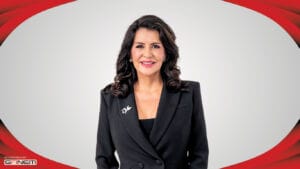In the U.S., 40% of adults don’t have $400 saved for an emergency. Even worse is, 25% have 0 savings for retirement.
You might seem to be doing fairly well right now, but do you actually manage your personal finances in a wise fashion? If something happened tomorrow, would you be able to cover it? Do you need the help of the best emergency savings calculator or another tool?
If not, then you need to practice better personal money management. In this article, we’ll tell you 4 ways to do so.
1. Don’t Use Credit Cards as Free Passes
When you first get a credit card, it might feel like you have the power to buy whatever you want for “free”. This is especially true if the company keeps raising your limit every time you almost hit it.
In the end, you’ll be stuck with a bunch of debt. Not to mention, you’ll have to pay a ton in interest as well.
Only make purchases you know you can pay off, and always pay off your balance by the end of the month. Not only can this build credit, but it can also prevent you from paying interest.
2. Create an Emergency Fund
If you don’t already have one, then do it now! Having a rainy day fund can mean the difference between paying off hefty medical bills or going into massive debt.
With every paycheck, put a small amount into your savings account and don’t touch it.
Should you end up not using it at all, then you’re left with money for a nice vacation or even a decent nest egg for retirement. It’s a win-win situation!
3. Understand Taxes
Unfortunately, you might’ve learned the hard way that you don’t get to keep all the money you earn at work. With each paycheck, you’ll see that a certain amount is deducted for certain taxes.
But it doesn’t just stop there. You’ll also have to pay income taxes every year, which leaves you with even less in your pocket.
By understanding taxes, you’ll have a more realistic picture of how much you bring home. And as a result, when amounts are deducted, it won’t be such a shock. Plus, you’ll practice better money management.
It might help to employ the services of a tax advisor. Learn how to choose one here: https://wealthability.com/blog/how-to-choose-a-tax-advisor/.
4. Track Your Spending
It’s easy to stick your head in the sand and ignore your spending habits. But all that’ll do in the long run is hurt you.
Every month, sit down and analyze how much you’re spending and where. If it’s a bit too much, determine where you need to pull the reigns in and try to adjust spending in the next month. Then, reassess and readjust if needed.
Practice Better Personal Money Management
If you haven’t thought much about personal money management, the time to start is now. You never know when an emergency will happen, and you’ll eventually have to retire one day.
By being prepared for the future, you’ll be able to have better peace of mind when the time comes to access your personal savings account for a large sum of cash.
For more financial tips and tricks, check out our other website posts now.




